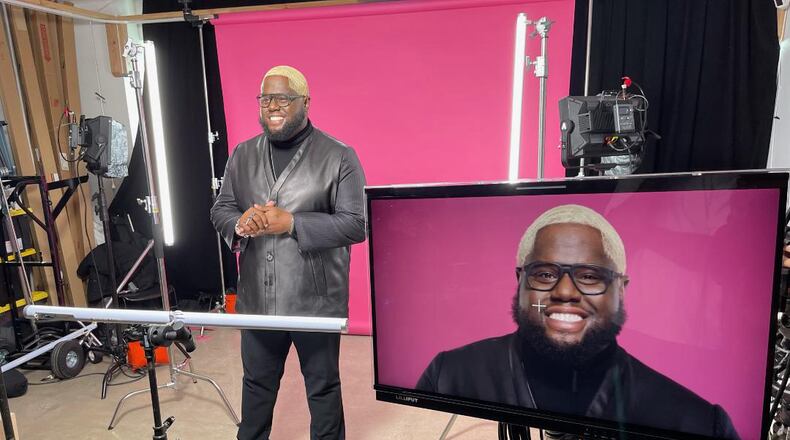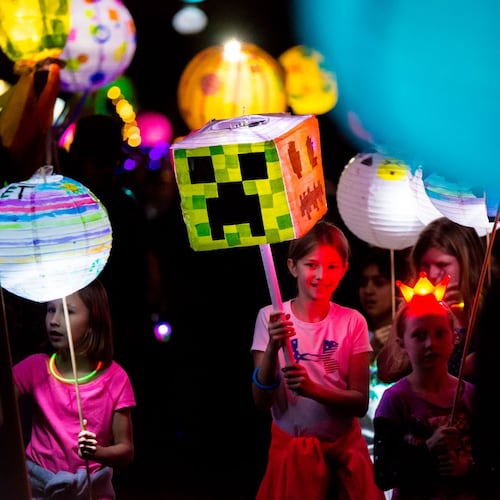Morgan-Ashley Bryant and Vanessa Coore Vernon recently opened Souk Bō'hēmian, a retail shop offering ready-to-wear fashion, home goods and handmade accessories in Ponce City Market. The women are forging a path similar to those of other marginalized groups who sought economic opportunities and mainstream acceptance while at the same time not abandoning their identity.
“So much of who we are is our identities as queer women. That’s why I’m so vocal: this is who I am. And, I’m OK with making people uncomfortable with it,” says Bryant. “If you have a problem, we won’t align anyway. We stand on the shoulders of our parents and grandparents who didn’t have the opportunities we had. We take pride in our blackness and queerness. Our people sacrificed their lives so that we can do this.”
Credit: Handout
Credit: Handout
Whether it be race, ethnicity, religion, nationality, sexual orientation or gender identification, groups created microeconomies with their own communities before, in the immortal words of that 1980′s TV theme song about Black dry cleaning magnate George Jefferson, they were “movin’ on up.”
The most recent group to seek mainstream assimilation while embracing their authentic selves may be those under the LGBTQIA+ umbrella, but similar to those those who forged the path before, it may be two steps forward and one back.
“It ebbs and flows. 10th Street and Piedmont and the rainbow crosswalk used to be the center for the gay community and now it’s not,” says Paul Conroy, co-founder and producing artistic director for the Out Front Theatre Company, which tells the stories of the LGBTQIA+ experience and community. “We’re going outside our insular neighborhood. The flip side is that the more you become assimilated into the great society, the less you see a need for specific spaces and businesses for those marginalized within your community. That goes back to feeling comfortable in your own skin, and even if you do, there are others that may not and they should be supported.”
Terri L. Denison, the state’s district director of the Small Business Administration, says that with changes in society “business owners are stating who they are. Ultimately everyone wants to compete in the free enterprise system. It starts with the consumer base that shares your demographic group. They create their own microeconomy,” she says. Adding, “I don’t know if its generational or just individual personalities but there are some business owners who are very vocal and make it clear that they are LGBTQ-owned while others don’t put their sexual identity out there.”
To helps these emerging groups, development programs aimed at providing training, funding and opening doors into the corporate and government purchasing departments were started. The National Minority Business Council, for instance, consists of 12,000 certified Minority Business Enterprises and works with more than 1,400 large corporations. To be certified, a business must be at least 25 % Asian, Black, Hispanic or Native American. There is a National Gay and Lesbian Chamber of Commerce that certifies its members. In 2004 there were 30 certified LGBTQI businesses; in 2021, that number rose to 1,830 who work with 399 corporate partnerships.
David Gacsko, owner and CEO of Hierarchy, a marketing firm, and president of the Out Georgia Business Alliance (formerly the Atlanta Gay & Lesbian Chamber of Commerce), says the certification does open doors. “It may present the opportunity to do business with some of the larger companies in Atlanta. But I don’t necessarily put it out there — present Hierarchy as a gay business. But, if it gives me a priority up with a company, I’d be stupid not to use it. And, people may choose not to work with us and I don’t care.”
The gay entrepreneurial community is still, in many cases, left on the outside of those major corporate partnership or governmental set-aside programs. The City of Atlanta’s Office of Contract Compliance provides opportunities to minority firms, which it defines as “small, disadvantaged, female and minority”; the gay community is not included. Yet.
“There is now acknowledgement in this mayor’s administration for the need for representation in supplier diversity. There is movement being made,” says Gabrielle Claiborne, co-founder and CEO of Transformation Journeys Worldwide. “There’s a lot of conversation around it.” Claiborne is a member of the Mayor’s LGBT Advisory Board.
Credit: Handout
Credit: Handout
Roy Broderick Jr., president and CEO of Authentique Agency, an integrated marketing firm, remembers earlier times. “In the old days you had to hide who you were. I worked in a corporate setting and everyone knew I was gay, but I didn’t want to be known as the ‘gay guy.’ I wanted to be known as a smart strategist who happens to be gay. Multicultural and minority populations always had to be resilient.”
Broderick, who sits on the Mayor’s LGBT Advisory Board, touts the importance of diversity programs and certification. The procurement departments of corporate entities and governments are discovering gay businesses. “They recognize it and are adding it to the portal. Awareness still needs to be made and we’re gonna get there. It takes time. What we don’t want is companies celebrating Pride but not doing anything internally. Networking alone makes certification worth it so you can learn from folks who do business.”
It’s the same with other minorities, he says. “We all have the same issues when it comes to funding, access to information and banking requirements. We’re starting to see things open up. The Voting Act wasn’t that long ago. People in our community are starting to see themselves in a positive way and are creating businesses and surviving.”
Credit: Steve Schaefer
Credit: Steve Schaefer
Buzz Busbee, owner of Yeahbuzzy, was one of three retailers selected for the Decatur Retail Incubator Program. A graphic designer, he creates bold, graphic-inspired apparel and goods and sells them at festivals and online. He is now looking to open a brick-and-mortar store.
“We’re intentionally inclusive of everyone even though our designs are driven conceptually around gay culture.” He sees the community expanding outside the traditional gay businesses of bars, design, health clubs and beauty salons. “The 2015 Marriage Equality Law really changed that. Gay bars used to be sacred safe spaces and now we’re allowed to go to other places. We’re becoming ingrained and intertwined in the community mainstream.”
As with other groups who feared being swallowed up in the melting pot, he says it’s important for the gay community to be authentic and stay connected. “Even though we’re becoming more mainstream, we all have a unique story to tell and it’s very important to be represented in our own community. I’m running my own company and it’s my vision. My customers are invested in it, and if you don’t like it, you can go elsewhere. We’re feeling more safe and more authentic. E-commerce has changed that a lot, too.”
As more gay businesses enter the mainstream, hopefully general acceptance of the community will increase. “Raising visibility normalizes what is normal,” says Claiborne.
While in the not-so-distant past (and in some cases still today) gay employees and entrepreneurs had to hide their identities in the workplace, it is becoming less so. “I identify as a Southern, Black, Christian male who is Jamaican. How do you tackle all of that?” said Broderick. Adding, “I see the new kids coming up. They couldn’t care less about having a label. They will not be put in a box. We have to wake up and see where the future is going.”
About the Author
Keep Reading
The Latest
Featured





